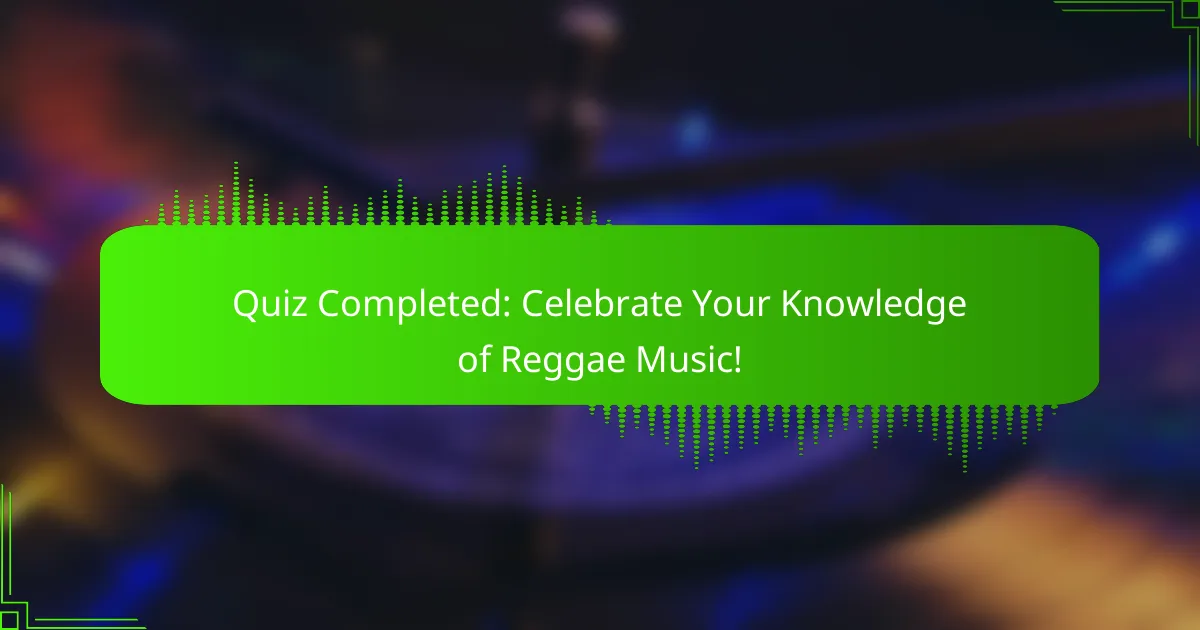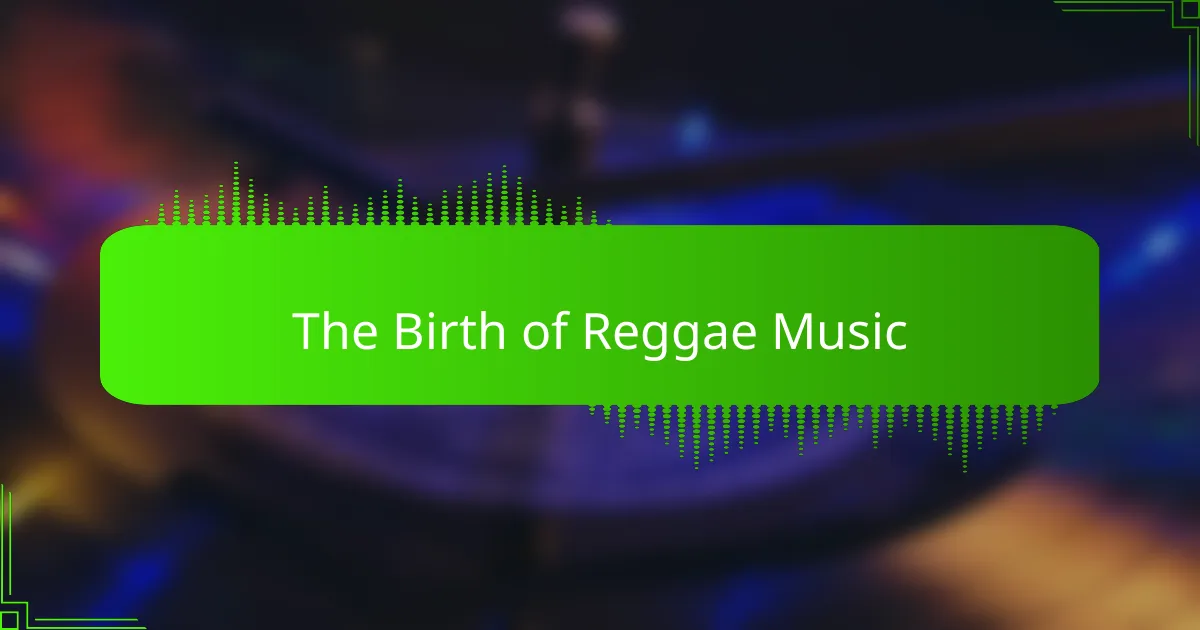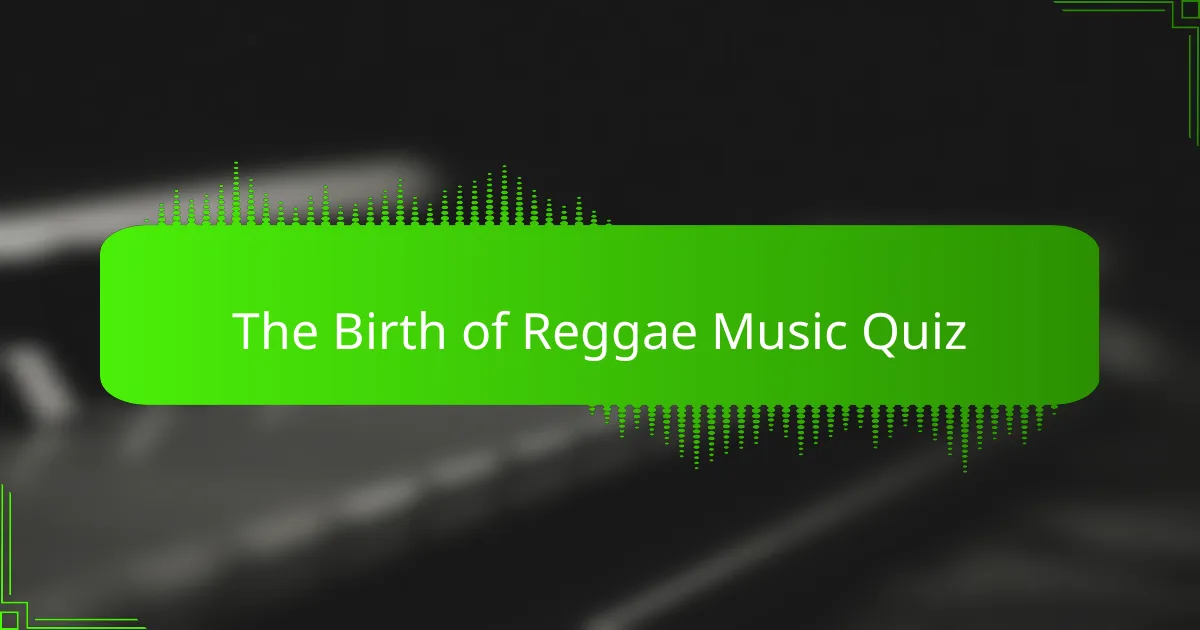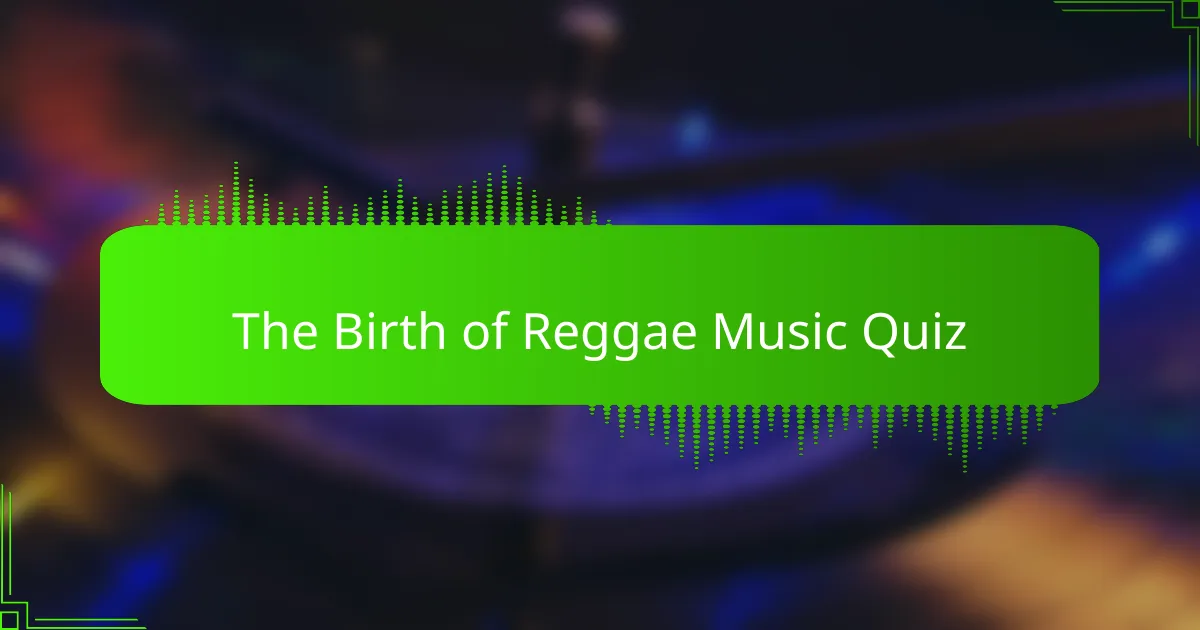
Quiz Completed: Celebrate Your Knowledge of Reggae Music!
Congratulations on completing the quiz on the birth of reggae music! We hope you enjoyed the journey through the rhythms and stories that shape this vibrant genre. Whether you discovered the influences of ska and rocksteady or learned about iconic artists like Bob Marley, each question was designed to deepen your appreciation of reggae’s rich history.
Reggae music is more than just sounds; it’s a cultural movement. You might have gained insights into how reggae has influenced music worldwide. The genres that emerged from reggae continue to resonate with audiences today, highlighting its lasting legacy. Understanding its roots can make listening to reggae even more enjoyable and meaningful.
For those eager to dive deeper, we invite you to explore the next section on our page. Here, you’ll find comprehensive information on the birth of reggae music, its evolution, and its impact on both society and contemporary artists. Expand your knowledge and continue your musical journey!

The Birth of Reggae Music
The Origins of Reggae Music
Reggae music originated in Jamaica during the late 1960s. It evolved from earlier genres like ska and rocksteady, drawing influence from African rhythms, jazz, and blues. Key figures in its development include Bob Marley and Peter Tosh, who popularized the genre globally. Reggae’s distinctive offbeat rhythms and laid-back style set it apart from other music forms. The cultural context of the Rastafarian movement also played a significant role in shaping the themes and messages within reggae.
Cultural and Historical Influences on Reggae
Reggae music reflects the social, economic, and political struggles of Jamaica. The music emerged in a post-colonial context, resonating with the experiences of marginalized communities. Artists like Bob Marley infused their lyrics with themes of resistance and liberation, connecting music with social movements. The influence of American rhythm and blues further shaped the sound of reggae, incorporating a fusion of Caribbean and African elements that defined its unique character.
Pioneering Artists and Their Impact
Pioneering artists like Bob Marley, Jimmy Cliff, and Toots and the Maytals were crucial to the birth of reggae. Bob Marley’s work, especially albums like “Catch a Fire” and “Rastaman Vibration,” brought global attention to reggae. Marley’s ability to blend political messages with catchy melodies helped the genre gain popularity outside Jamaica. Toots Hibbert’s song “Do the Reggae” is credited with popularizing the term “reggae,” linking the music directly to its roots and cultural expression.
The Role of Record Labels and Sound Systems
Record labels such as Studio One and Treasure Isle played a foundational role in the emergence of reggae music. These labels were vital in producing and distributing reggae records in Jamaica. The sound system culture also significantly influenced its growth. Local DJs would host dance parties, playing reggae tracks, which helped popularize various artists. This grassroots approach fostered an environment where reggae flourished, allowing artists to reach audiences directly.
Reggae’s Global Spread and Evolution
By the 1970s, reggae began to spread internationally, partly due to the efforts of artists like Bob Marley and the Wailers. Their tours introduced reggae to audiences in Europe and North America. The genre influenced numerous other music styles, including hip-hop and punk. Reggae festivals, such as Reggae Sumfest, helped solidify its global presence. Today, reggae remains a vibrant and influential genre with various substyles, including dancehall and roots reggae, celebrating its rich heritage and ongoing evolution.
What is the origin of reggae music?
Reggae music originated in Jamaica in the late 1960s. It evolved from earlier musical styles like ska and rocksteady. Reggae features a distinctive beat, often emphasizing the offbeat rhythm. The genre became popularized globally through artists like Bob Marley, whose album “Catch a Fire,” released in 1973, played a pivotal role in its international recognition.
How did reggae music influence popular culture?
Reggae music significantly influenced popular culture by promoting messages of peace, love, and social justice. Artists like Bob Marley and Peter Tosh used their music to raise awareness of political issues and advocate for change. The genre’s rise in the 1970s contributed to the Rastafarian movement gaining recognition, emphasizing cultural identity and spiritual expression.
Where did reggae music gain its initial popularity?
Reggae music gained its initial popularity in Jamaica, particularly in urban areas such as Kingston. It became associated with the Rastafarian community and enjoyed widespread airplay on local radio stations. By the mid-1970s, reggae started to capture international attention, especially in the United Kingdom and the United States, through performances and record sales.
When did reggae music first emerge on the global stage?
Reggae music first emerged on the global stage in the early 1970s. The release of key albums like Bob Marley’s “Catch a Fire” in 1973 marked a turning point. This period saw reggae entering the mainstream music scene, leading to iconic performances at festivals and an increase in international radio airplay, showcasing its cultural significance.
Who are the key artists in the development of reggae music?
Key artists in the development of reggae music include Bob Marley, Peter Tosh, and Jimmy Cliff. Bob Marley is perhaps the most recognized figure, known for his albums like “Legend” and “Exodus.” Peter Tosh was instrumental in incorporating political and social themes into reggae, while Jimmy Cliff’s film “The Harder They Come” in 1972 brought reggae to a wider audience.

